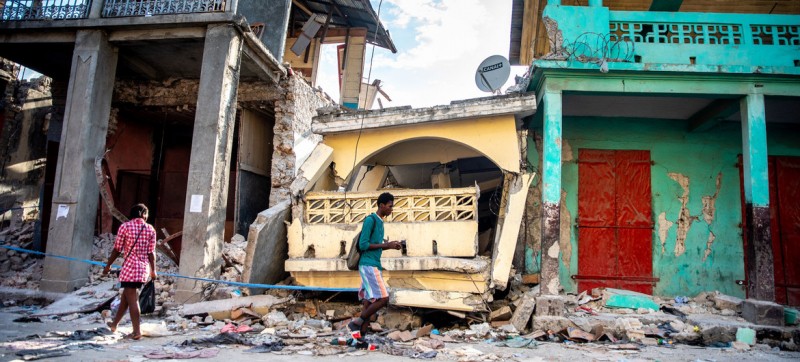Haiti is recovering from a series of crises including an earthquake which struck the country in August 2021. The number of children and women abducted in Haiti until the end of August already surpassed last year’s total, the UN Children’s Fund (UNICEF) warned this Thursday. According to UNICEF Regional Director for Latin America and the Caribbean, Jean Gough, “nowhere is safe for children in Haiti anymore.” “Whether on their way to school, at home or even at church, girls and boys are at risk of being kidnapped anywhere, at any time of the day or night. This is every parent’s worst nightmare”, she explained. UNICEF estimates, based on official sources, that 71 women and 30 children were abducted in the first eight months of this year, up from 59 women and 37 children last year. The number represents one third of the 455 kidnappings reported. Most of the kidnappings are taking place in the capital city of Port-au-Prince, and most abductees are Haitian.
"Nowhere is safe for children in Haiti anymore," says @Jean_UNICEF. So far this year, more than 100 women and children have been kidnapped across the country.https://t.co/KlKHx9Qhxl
— UNICEF (@UNICEF) October 21, 2021
Upsurge in violence
Since June, gang violence in the area has displaced at least 19,000 people and has affected 1.5 million.
“Criminal gangs are using children as bargaining chips and making money off parents’ love for their children,” said Ms. Gough. “Amidst widespread poverty and rampant criminality, child abductions have become a lucrative business. This is abhorrent.”
According to news reports, The Center for Analysis and Research in Human Rights, a Haiti-based NGO, has reported nearly 800 kidnappings in the country this year. In the first half of October alone, 119 people were abducted.
Just last weekend, 17 missionaries from the United States and Canada were kidnapped. The missionaries were returning from a visit to an orphanage when their bus was reportedly seized by members of the 400 Mazowo gang.
Specifically, for children and their mothers, these acts have a long-lasting impact. Captivity always causes trauma as they often witness or experience humiliation, threats and, in some cases, violence.
To improve reporting of incidents and assistance, UNICEF has supported the national child protection agency (IBESR) in reactivating its free hotline to be used alongside a helpline run by the Brigade for the Protection of Minors (BPM).
Combination of crises
Haiti is still reeling from a devastating earthquake that hit the southwestern part of the country in August, leaving 130,000 houses, over 1,000 schools and some 90 health centres damaged or destroyed.
Additionally, the expulsion of over 7,600 Haitian migrants, more than half of whom are women and children, from the United States and other countries in the Americas, could place more vulnerable children and women at risk.
According to the acting Resident and Humanitarian Coordinator, Fernando Hiraldo, all these crises pose obstacles to humanitarian access. The situation is further complicated by very serious fuel shortages and the reduced supply of goods.
According to Mr. Hiraldo, the security situation, which was already precarious, has deteriorated significantly since the assassination of President Jovenel Moïse in July.
Across the country, as of September 2021, 4.3 million people were experiencing high levels of acute food insecurity, up from 4 million in August 2020.
Currently, about 70 per cent of all schools in the southwestern part of the country are still damaged or destroyed, according to UNICEF.
Earlier this month, when addressing the Security Council, Helen La Lime, Special Representative and head of the UN Integrated Office in Haiti (BINUH), said the country is undergoing “one of the most fraught periods of its recent history”.




Comments are closed.